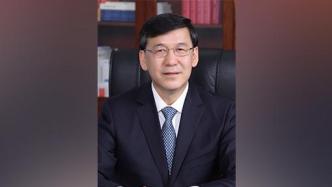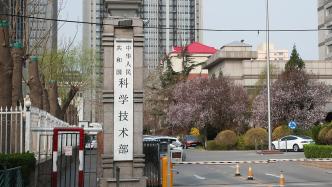

On November 9, the Ministry of Science and Technology, the Ministry of Education, the Ministry of Industry and Information Technology, the Ministry of Finance, the Ministry of Water Resources, the Ministry of Agriculture and Rural Affairs, the National Health Commission and the Chinese Academy of Sciences jointly issued the "Work Plan on Carrying out the Pilot Reform of Scientific and Technological Talent Evaluation" (hereinafter referred to as the "Work Plan"). "Pilot Program").
12 scientific research institutes including the Shanghai Institute of Microsystems and Information Technology of the Chinese Academy of Sciences, 9 institutions of higher learning or affiliated institutions of higher education including Tsinghua University, and 6 places including Shanghai were selected as pilots for the reform of scientific and technological talent evaluation. The pilot period will be 2 years from the date of approval of the pilot implementation plan.
The above notice requires the competent departments of each pilot unit to organize the pilot unit to formulate a pilot implementation plan, and the pilot localities to formulate a comprehensive reform pilot plan, which should be submitted to the Ministry of Science and Technology before December 15, 2022.
On June 22, the 26th meeting of the Central Committee for Comprehensively Deepening Reform reviewed and approved the "Pilot Program".
The 12 scientific research institutes that carry out the pilot reform of scientific and technological talent evaluation announced in the "Pilot Program" are: Shanghai Institute of Microsystems and Information Technology, Chinese Academy of Sciences, Institute of Computing Technology, Chinese Academy of Sciences, Institute of Mathematics and Systems Science, Chinese Academy of Sciences, Chinese Academy of Sciences Institute of Physics, Institute of Process Engineering, Chinese Academy of Sciences, Dalian Institute of Chemical Physics, Chinese Academy of Sciences, Chinese Academy of Water Conservancy and Hydropower Research, Nanjing Water Resources Research Institute, Institute of Agricultural Resources and Agricultural Zoning, Chinese Academy of Agricultural Sciences, Institute of Agricultural Genomics, Chinese Academy of Agricultural Sciences , the Fifth Institute of Electronics of the Ministry of Industry and Information Technology, the Chinese Academy of Medical Sciences and Peking Union Medical College.
The nine institutions of higher learning or affiliated institutions of higher education that have carried out the pilot reform of scientific and technological talent evaluation are: Tsinghua University, Peking University, Zhejiang University, Beijing University of Posts and Telecommunications, Xidian University, Southwest Jiaotong University, Jiangnan University, West China Clinical Medical College of Sichuan University ,Harbin Institute of Technology.
The six places to carry out the pilot reform of scientific and technological talent evaluation are: Shanghai, Shandong, Hubei, Sichuan, Shenzhen, and Nanjing.
The article "Policy Interpretation on the Work Plan for Carrying out the Pilot Reform of the Evaluation of Scientific and Technological Talents" published on the official website of the Ministry of Science and Technology stated that the evaluation of scientific and technological talents is the basic system of talent development and an important part of deepening the reform of the scientific and technological system. It is very important to produce high-quality scientific research results and create a good innovation environment. In order to thoroughly implement the requirements of the Party Central Committee on the reform of the evaluation of scientific and technological talents, the Central Deep Reform Commission took the pilot work of the evaluation of scientific and technological talents as a key reform task, and the Ministry of Science and Technology took the lead in promoting it. The Ministry of Science and Technology, together with relevant departments, conscientiously implements the deployment of the Central Deep Reform Commission and the spirit of the Central Talent Work Conference, and researches and formulates the "Work Plan on Carrying out the Pilot Reform of Scientific and Technological Talent Evaluation". New standards, new methods, and new mechanisms for evaluation, highlight the national mission orientation, form experience that can be replicated, promoted and implemented, and promote the construction of a scientific and technological talent evaluation system oriented by innovation value, ability, and contribution.
Attached is the full text of the "Work Plan for Carrying out the Pilot Reform of Scientific and Technological Talent Evaluation":
Work Plan for Carrying out the Pilot Reform of Scientific and Technological Talent Evaluation
In order to thoroughly implement the important deployment of the Fifth Plenary Session of the 19th Central Committee of the Communist Party of China on improving the evaluation system for scientific and technological talents and the spirit of the Central Talent Work Conference, in accordance with the work arrangement of the Central Comprehensive Deepening Reform Committee on carrying out the pilot reform of scientific and technological talent evaluation, it is aimed at talent evaluation "breaking four". After the "only", the "new standard" is not in place, the innovation of evaluation methods is not in place, the reform of resource allocation evaluation is not in place, and the construction of the evaluation system for employers is not in place.
1. General idea
Guided by Xi Jinping Thought on Socialism with Chinese Characteristics for a New Era, fully implement the spirit of the 19th National Congress of the Communist Party of China and the 19th Plenary Sessions, and conscientiously implement General Secretary Xi Jinping's important thoughts on doing a good job in talent work in the new era and important expositions on scientific and technological innovation, Focusing on the "Four Aspects", focusing on the national scientific and technological tasks to make good use of talents, innovating the evaluation mechanism of scientific and technological talents, aiming at stimulating the innovation vitality of scientific and technological talents, and focusing on "what to evaluate, who will evaluate, how to evaluate, and how to use" , with the breakthrough of "breaking the four philosophies" and "setting new standards", with the guarantee of deepening reform and policy coordination, and constructing a scientific and technological talent evaluation system oriented by innovation value, ability and contribution according to the type of innovation activities, and guide all kinds of scientific and technological talents to give full play to their talents. , Make the best use of talents, and use them to achieve success, and provide strong talent support for realizing high-level scientific and technological self-reliance and building a world power in science and technology.
The basic principle:
- Adhere to problem orientation. Promote the implementation of talent evaluation reform in major scientific and technological tasks, major innovation base construction and other major national innovation activities, and strive to overcome the tendency of "only papers, professional titles, academic qualifications, and awards", and focus on solving problems such as difficulty in implementing the reform of scientific and technological talent evaluation. .
- Adhere to classification and promotion. Explore the evaluation indicators and evaluation methods of scientific and technological talents in undertaking major national scientific and technological tasks, basic research, applied research and technology development, social welfare research and other innovative activities, scientifically and objectively evaluate talents, and form generalizable experience and practices.
- Insist on using traction. Highlight national goals and mission orientation, play a motivating role, adhere to whoever uses the evaluation, use the evaluation results, scientifically use the evaluation results, rationally connect scientific and technological talent incentives, and guide all kinds of scientific researchers to serve the country, devote themselves to research, and do their due diligence. Take responsibility and make a contribution.
- Adhere to collaborative implementation. Strengthen departmental coordination and local linkages, fully integrate existing reform pilot policies such as scientific and technological achievement evaluation, scientific research funding management, and scientific research-related autonomy, and form a reform synergy in the discovery, training, use, and incentives of scientific and technological talents.
Pilot units and localities: select scientific research institutes, institutions of higher learning or affiliated institutions of institutions of higher learning that have established national scientific and technological innovation bases, undertake many national scientific and technological tasks, have good demonstration effects, and have a good basis for talent evaluation, as well as those with a large number of scientific researchers. Scientific research institutes in the fields of agriculture, health, water conservancy, industry and informatization will carry out pilot work on the reform of scientific and technological talent evaluation by category. At the same time, select some provinces and cities with relatively concentrated scientific research units, undertake more national tasks, and have a good foundation to carry out comprehensive pilot work on the evaluation and reform of scientific and technological talents. Pilot units should have independent legal personality.
Pilot period: 2 years (from the date of approval of the pilot implementation plan).
2. Pilot tasks
Adhere to both ability and political integrity, take morality as the primary content of the evaluation of scientific and technological talents, and on the basis of strengthening the evaluation of scientific spirit and academic ethics of scientific and technological talents, according to the evaluation of talents who undertake major national key tasks, as well as basic research, applied research and technology development It proposes pilot tasks from the aspects of constructing evaluation indicators that conform to the characteristics of scientific research activities, innovating evaluation methods, and improving the internal system construction of employers, so as to promote the improvement of the talent evaluation system and form an operational, replicable and popularized talent evaluation system. effective practice.
(1) Evaluation of talents who undertake major national key tasks
1. Highlight the orientation of supporting major national strategic needs, establish evaluation indicators that reflect the actual contribution and innovation value of supporting national security, breaking through key core technologies, and solving major economic and social development problems, focusing on evaluating the completion of major national scientific research tasks.
2. Improve the user-oriented evaluation method of scientific research tasks, and fully listen to the opinions of the task entrusting party and the result adopter. Pay attention to the combination of individual evaluation and team evaluation.
3. For the scientific research personnel who undertake the "stuck neck" major national key research tasks, the national major scientific and technological infrastructure construction tasks, etc. and make important contributions, increase the preferential support in terms of job employment, professional title evaluation, performance appraisal, etc.
(2) Evaluation of basic research talents
1. Implement the evaluation of representative works marked by original achievements and high-quality papers, and establish talent evaluation indicators that reflect major original contributions, national strategic needs, discipline characteristics, academic influence and research capabilities. Get rid of the tendency of "only the number of papers", do not use related indicators such as the number of papers and the impact factor as quantitative assessment indicators, and encourage researchers to publish more high-quality papers in domestic scientific and technological journals.
2. According to the characteristics of the discipline and the nature of the task, scientifically determine the evaluation cycle, and focus on exploring the low-frequency and long-term evaluation mechanism.
3. Explore and establish a responsibility mechanism for peer evaluation, establish relevant systems in the selection, management and credit records of experts, and standardize the methods and procedures of peer evaluation, evaluation feedback and other behaviors. Explore the introduction of third-party evaluations such as academic groups, international peer evaluations, etc.
4. Establish and improve relevant systems such as job employment, professional title evaluation, and performance appraisal that reflect the characteristics of basic research talent evaluation, and increase support for major scientific discoveries and basic researchers who have made original breakthroughs.
5. Explore the mechanism by which front-line scientists recommend outstanding young scientific and technological talents to serve as important scientific research positions and undertake "from 0 to 1" basic research tasks.
(3) Evaluation of applied research and technology development talents
1. Guided by technological breakthroughs and industrial contributions, focus on evaluating representative achievements such as technical standards, technical solutions, high-quality patents, industrialization of achievement transformation, and in-depth integration of industry-university-research institutes. Evaluation indicators of integration capabilities, market value and application effectiveness of achievements, and contributions to economic and social development. Whether or not to publish papers, the number of patents obtained, and the amount of national project funding applied for shall not be the main evaluation indicators.
2. Exploring and constructing an evaluation method that combines the key evaluation technology level of experts and the market evaluation of industrial value, and the in-depth participation of the market, users and third parties.
3. For scientific researchers who undertake national scientific research tasks, especially urgent, difficult, dangerous and heavy scientific research tasks, and national major scientific and technological infrastructure construction tasks and make contributions, the weight of performance appraisal will be given preference, and outstanding scientific researchers will be guided to join the national scientific and technological tasks.
4. Explore the establishment of scientific and technological achievements transformation posts, focus on evaluating the effectiveness of scientific and technological achievements transformation, and establish a high-level and professional achievements transformation talent team.
(4) Evaluation of social welfare research talents
1. Highlight the characteristics of the industry and positions, focus on evaluating the ability and effect of common key technology development and services such as serving public management, responding to emergencies, ensuring people's livelihood and social security, and exploring the establishment of performance application benefits, technological service satisfaction and social security. The evaluation index of benefit guides researchers to write their papers on the land of the motherland. Highlight the long-term contributions of scientific researchers in difficult and remote areas, high-risk positions, grass-roots front-line and basic scientific research work. No rigid economic evaluation index shall be established.
2. Improve the social evaluation method, fully listen to the opinions of industry users and service objects, and pay attention to government and social evaluation. Determine a reasonable evaluation period according to different types of scientific research and service activities.
3. For scientific researchers who undertake and support national scientific research tasks and make contributions, and have achieved remarkable results in the application of scientific research results, give preference to job employment, professional title evaluation, performance appraisal, etc., and guide outstanding scientific researchers to join the national public welfare undertakings.
(5) Comprehensive pilot tasks for the evaluation and reform of local scientific and technological talents
The pilot local governments should focus on the scientific and technological innovation tasks and talent team building in the region, and take "breaking the four uniques" and "setting new standards" as breakthroughs, organize and guide the regional superior scientific research units and new research and development institutions to deepen the reform of the classification and evaluation of scientific and technological talents, and make bold innovations. Talent discovery, training, use, and incentive mechanism, give full play to the policy integration effect, promote the integrated allocation of talents, projects, bases and funds, effectively stimulate the vitality of scientific and technological talents, and explore the formation of regional experience that can be promoted and replicated.
3. Pilot safeguard measures
Relevant departments and localities should thoroughly implement the reform and deployment of scientific and technological talent evaluation, strengthen the guidance, service and policy support for pilot units, consolidate the main responsibility of the reform, strengthen the supervision of the pilot work, and ensure the smooth progress of the pilot work.
As the main responsible unit, the Ministry of Science and Technology should shoulder the responsibility of organization and promotion and take the lead in reform, promote the implementation of the autonomy of scientific research units, and eliminate the "four uniqueness" in the evaluation of scientific and technological plan projects, the performance evaluation of scientific research institutions, and the selection of scientific and technological talent plans, and highlight innovation value and ability. , Contribution orientation. Improve the talent evaluation mechanism in the organization and implementation of projects such as the "Chief Scientist Responsibility System", "Revelation System", and "Horse Racing System", and discover and select outstanding scientific and technological leaders and innovative teams with strength, ability to tackle key problems, and achievements to undertake major scientific and technological research. Task.
The Ministry of Education, the Ministry of Industry and Information Technology, the Ministry of Water Resources, the Ministry of Agriculture and Rural Affairs, the National Health Commission, the Chinese Academy of Sciences, etc., as the competent departments of the pilot units, should implement the reform requirements of talent evaluation in combination with the work of their own departments and industries, and improve industry talents. Evaluation mechanism, giving employers the autonomy of evaluation. Organize and guide the affiliated pilot units to actively carry out the evaluation reform pilot work, and regard the completion of national tasks, especially urgent, difficult, dangerous and important scientific research tasks, original scientific discoveries, major technological breakthroughs, actual effects of scientific and technological achievements transformation, and social welfare service benefits as the innovation performance of the pilot units. important content of the evaluation. The Ministry of Education should scientifically and rationally set evaluation indicators in the "double first-class" construction and subject evaluation, and improve the dynamic monitoring and periodic evaluation of the "double first-class" construction effectiveness evaluation. The Ministry of Industry and Information Technology should build a talent evaluation system oriented by industrial scientific and technological innovation, highlight support for national key projects, major technologies and equipment scientific and technological innovation, and guide scientific and technological talents to serve the construction of a strong manufacturing country and a strong Internet country. The Ministry of Water Resources should build an application innovation-oriented evaluation system for scientific and technological talents, highlight benefit indicators, and guide talents to serve major projects. The Ministry of Agriculture and Rural Affairs should build a classification evaluation system that highlights the main responsibilities and performance contributions of serving "three rural areas", and favors scientific research personnel who have long been rooted in grass-roots production and engaged in scientific research and technology extension services. The National Health and Health Commission should build a clinical practice-oriented talent evaluation system, explore big data evaluation methods based on medical record filing data, and guide talents to improve their medical and health technical capabilities and serve people's health. The Chinese Academy of Sciences should explore the establishment of a special research post system to precisely motivate and stably support a group of core and backbone talents to devote themselves to basic frontier cross-original innovation and key core technology research.
4. Organization and implementation
(1) Establish a working mechanism
Under the overall coordination of the Central Talent Work Leading Group, the Ministry of Science and Technology, together with the Ministry of Education, the Ministry of Industry and Information Technology, the Ministry of Finance, the Ministry of Water Resources, the Ministry of Agriculture and Rural Affairs, the National Health Commission, the Chinese Academy of Sciences and other departments, jointly promoted the implementation of the pilot work plan, and selected the pilot program. Units, clarify the division of tasks, coordinate and solve key problems, supervise the implementation of pilot work, and carry out evaluation summaries and demonstrations.
(2) Prepare a pilot implementation plan
After the pilot work plan is issued, the relevant competent departments organize the pilot unit to select the pilot content based on the characteristics of the unit in the industry, formulate a specific implementation plan, encourage comprehensive pilot work, and highlight the evaluation of talents who undertake major national key tasks; system design. The implementation plan of the pilot unit and the local comprehensive reform pilot plan shall be submitted to the Ministry of Science and Technology, and the Ministry of Science and Technology shall discuss and agree to the relevant departments and then start the implementation.
(3) Promoting the implementation of pilot projects
Pilot units should effectively strengthen the leadership of the party, perform the main responsibility of legal persons, fully promote democracy, build consensus widely, research and formulate pilot implementation plans on the basis of research, adhere to both incentives and constraints, effectively establish and improve various rules and regulations, and improve job recruitment. , professional title evaluation, performance appraisal, commendation and rewards and other related systems for talent evaluation, while strengthening reasonable incentives, strengthen the supervision of scientific research integrity and diligence, strengthen the constraints on academic misconduct, scientific research violations and disciplines, and guide scientific and technological talents to concentrate on research , and take responsibility, so that the pilot results are more conducive to the development of the unit's career, ability improvement, and environmental optimization.
The Ministry of Science and Technology and relevant departments should do a good job in coordinating and coordinating the pilot work, do a good job in the publicity and interpretation of the reform pilot, track the progress of the pilot work in a timely manner, organize and carry out work exchanges on the progress of the pilot tasks, and timely study and solve important situations and problems that arise during the pilot process. Do the pilot, summarize, and improve. After the expiration of the pilot work, the Ministry of Science and Technology, together with relevant departments and localities, will evaluate the completion of the pilot work, summarize experience and typical cases, and promote it in a timely manner.
Attachment: List of Pilot Units and Localities Carrying out the Reform of Scientific and Technological Talent Evaluation
List of pilot units and localities to carry out scientific and technological talent evaluation reform
Research institutes (12 in total):
Chinese Academy of Sciences Shanghai Institute of Microsystems and Information Technology, Chinese Academy of Sciences Institute of Computing Technology, Chinese Academy of Sciences Institute of Mathematics and Systems Science, Chinese Academy of Sciences Institute of Physics, Chinese Academy of Sciences Institute of Process Engineering, Chinese Academy of Sciences Dalian Institute of Chemical Physics.
China Academy of Water Resources and Hydropower, Nanjing Institute of Water Resources, Institute of Agricultural Resources and Agricultural Zoning, Chinese Academy of Agricultural Sciences, Institute of Agricultural Genomics, Chinese Academy of Agricultural Sciences, Fifth Institute of Electronics, Ministry of Industry and Information Technology, Chinese Academy of Medical Sciences and Peking Union Medical College .
Institutions of higher learning or affiliated institutions of higher education (9 in total):
Tsinghua University, Peking University, Zhejiang University, Beijing University of Posts and Telecommunications, Xidian University, Southwest Jiaotong University, Jiangnan University, West China Clinical Medical College of Sichuan University, Harbin Institute of Technology.
Places (6 in total):
Shanghai, Shandong, Hubei, Sichuan, Shenzhen, Nanjing.


